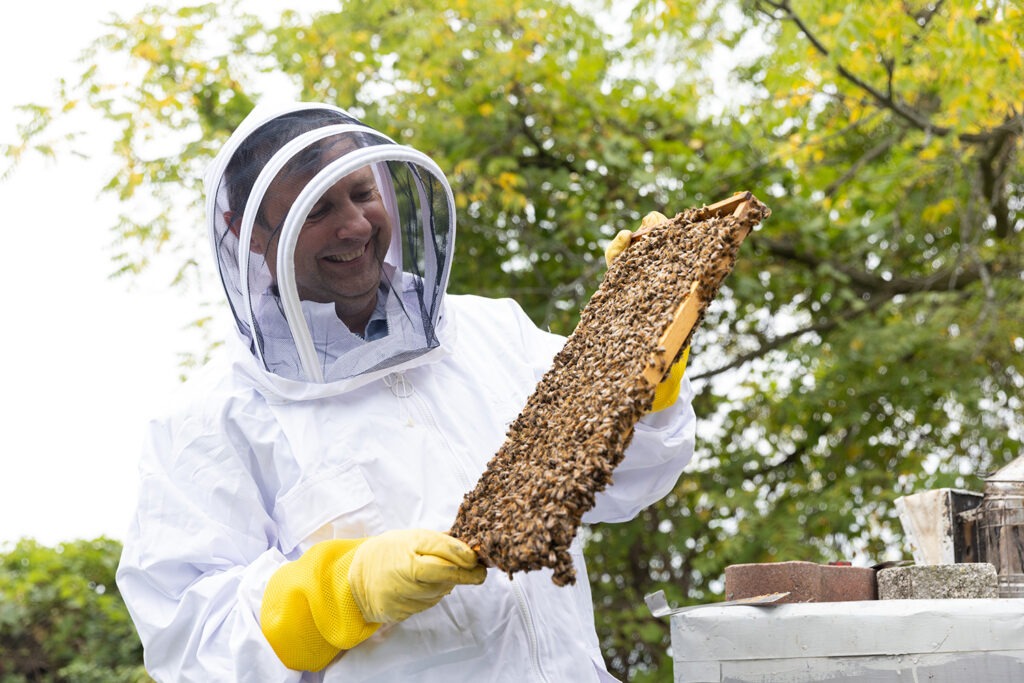
A Unity Health spiritual care practitioner responds with compassion and without judgement — to patients and pollinators
Father Boris Hemon answers the call, from the bedside to the beehive.
STORY AND PHOTOS BY KATIE COOPER
Each morning in the Medicine and Surgical Unit at St. Joseph’s Health Centre, a team of health care professionals meet to review patient cases. Among them sits a casually dressed man quietly jotting down notes. He doesn’t wear a stethoscope or speak in medical terminology, but has become a calm and trusted member of the group. When the discussion turns to a young patient with no family nearby, he leans towards the social worker and says, “It sounds like I should see this patient.”
This is Father Boris Hemon, an ordained Catholic priest and registered psychotherapist, who has worked at the health centre for 25 years as a spiritual care practitioner. He is often found in palliative care, medical/surgical, and the intensive care units, following up with referred patients or introducing himself to new ones. In moments of loneliness, uncertainty and grief, he offers healing and comfort beyond the confines of traditional medicine.
Enjoying this story? Sign up for the Unity Health Toronto newsletter, a monthly update on the latest news, stories, patient voices and research emailed directly to subscribers.
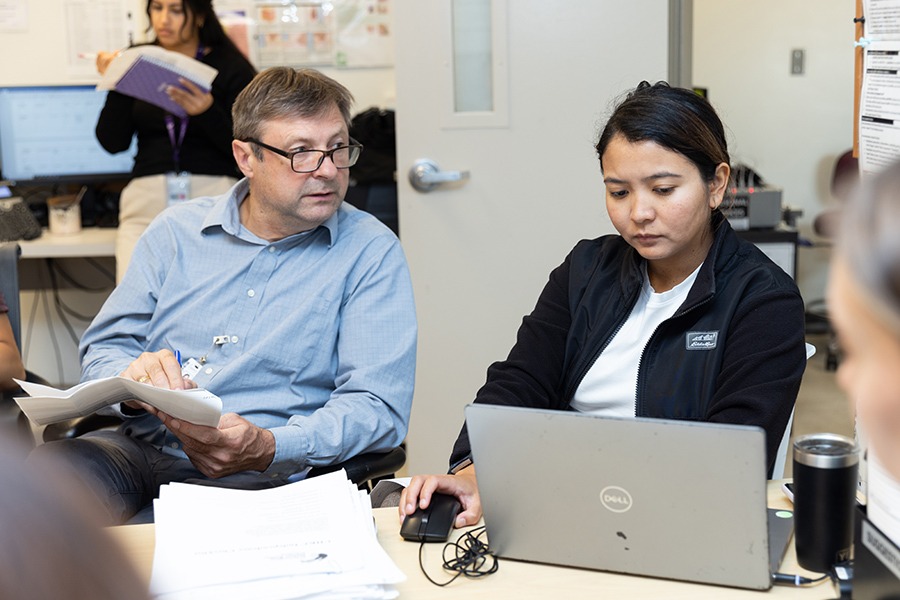
“(Hemon) adds another dimension to a patient’s care,” says Nurse Practitioner Sharon Mulsant who has witnessed Hemon’s positive impact with patients at St. Joe’s. “We can empathize and sympathize with patients, but some really require a different level of assessment and intervention. He can comfort patients in ways that we can’t.”
“In what can be a very vulnerable time, we help humanize the person, beyond what brought them into the hospital,” says Bill Ford, Manager of Mission and Values, Spiritual Care and Education at Unity Health Toronto. “Our team helps people seek meaning, purpose, and connection in their lives.”
Spiritual care practitioners are available at all three Unity Health hospitals, with 24/7 access at the acute care sites of St. Joseph’s and St. Michael’s. The team is multi-faith and provides patient-centred spiritual and emotional support to patients, residents and their families across religious and cultural traditions from Buddhism, Islam, Christianity and Indigenous Spirituality. They help patients to connect with their beliefs by facilitating ceremonies, rites of passage and cultural and/or religious rituals.

Among the spiritual care practitioners at Unity Health, Hemon is the only one tasked with the wellbeing of another, much smaller community: His colony of bees.
He sees many connections between those two worlds.
“We observe the bees, detect problems and respond to their needs,” he says. “As spiritual care practitioners, we are trained to listen deeply, observing emotional and spiritual cues to create an emotionally safe space for people to process grief, fear, or moral injury.”
‘It works both ways’
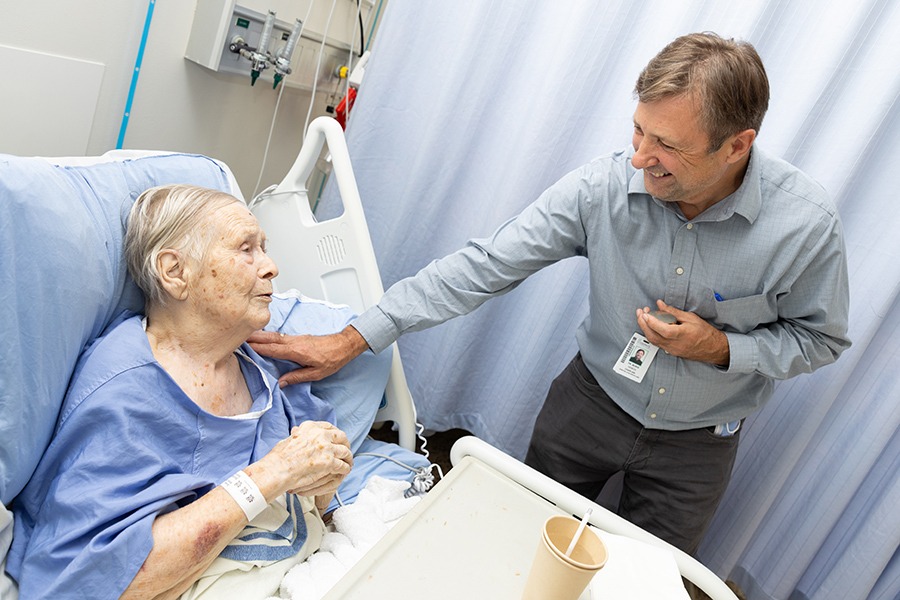
After morning rounds, Hemon enters the room of 91-year-old Doneen Vernon. “Boris became a dear, dear friend,” says Vernon. “Immediately we clicked.” The former race car driver came to the hospital a few months ago with a heart condition and is currently waiting for a bed in a long-term care facility.
“The best part of his visit is his sense of humour,” says Vernon who enjoys their daily exchange of life stories. “I hate black on priests. I think Boris brings great cheer when he has a colour like blue on,” she says. “When I’m having a bad day he cheers me up. And I hope to cheer him up too.”
Hemon smiles and replies “Yes, it works both ways.”
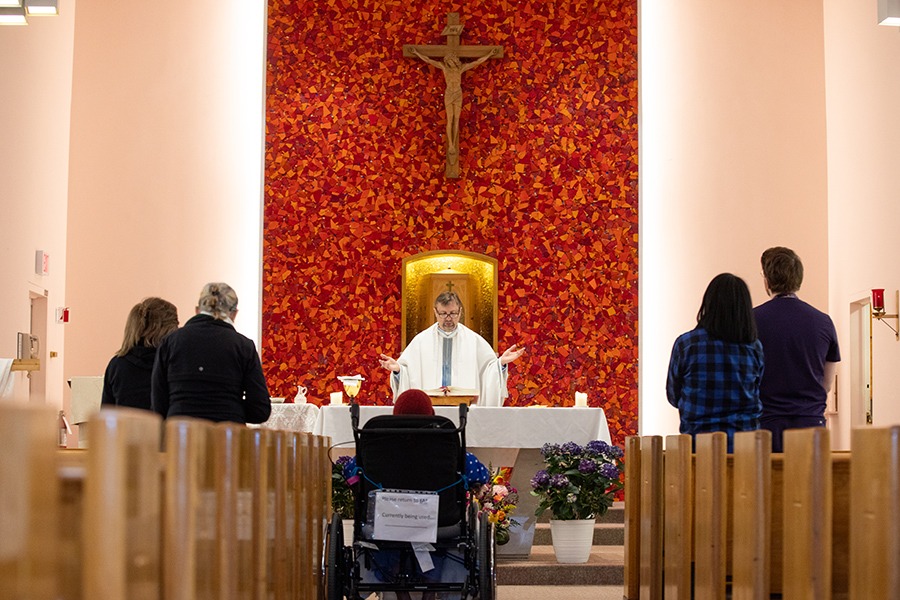
Each day at noon, Hemon leads mass in the hospital’s in-house chapel. To prepare, he reflects on scripture and writes a short message, puts on his robe, lights candles, and sets out the bread and wine. Services are often attended by patients, their families and staff on lunch break, drawn by the peaceful setting and uplifting words.
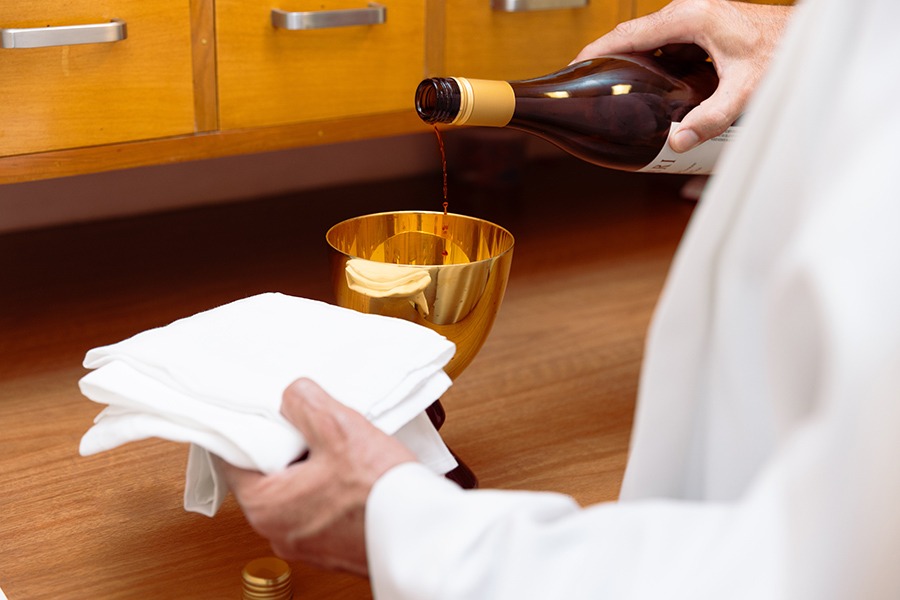
The chapel stays open throughout the day as a quiet space for prayer or reflection. Hemon is always ready to listen to family members stepping away from a loved one’s bedside.
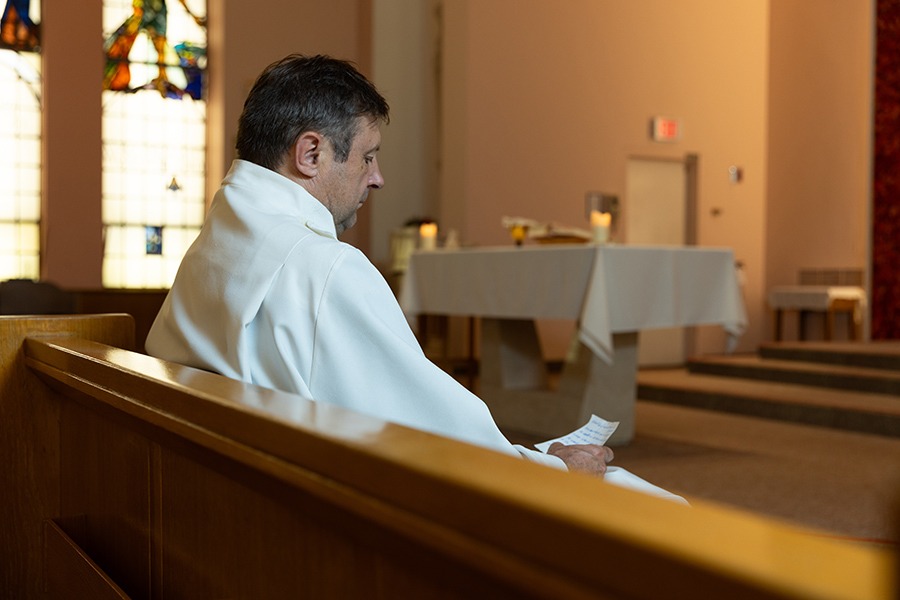
“I’ve always been a spiritual person,” says Hemon. Growing up in Bosnia, a multiethnic, multicultural, and multifaith country, he was inspired at a young age to explore faith and vocation. He studied engineering and attended church regularly with his family, but when war broke out in the early 1990s, his family came to Canada as refugees.
“I was searching. Where is that God the preachers talked about—the one who loves us so much?” That questioning led him to seminary studies in Ottawa, where he discovered clinical pastoral education. This was a path that allowed him to serve people of all faith backgrounds, particularly those on the margins or in crisis. “We are all God’s children and all deserve compassion,” he says. “And compassion comes from the Latin word compassio, which means ‘to struggle with.’”
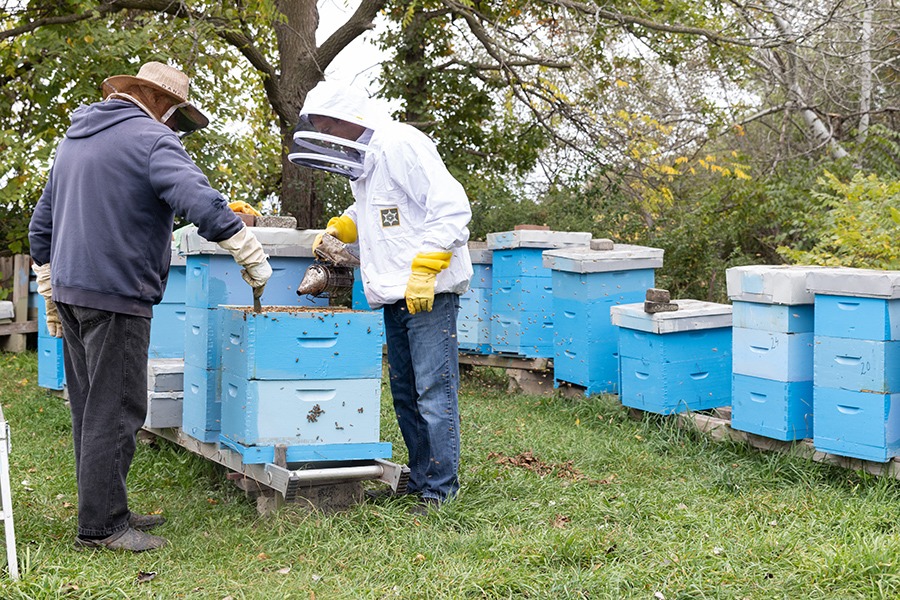
In addition to his work at Unity Health, Hemon takes great joy in maintaining his families’ 100-year long tradition of beekeeping. He sees this work as a symbol of resilience and hope. “It’s deeply fulfilling and spiritual. A profound connection to nature, the Creator, and life cycles,” he says. “When I open the beehive, I enter into a completely different world. I have to be focused on it and to be at peace.”
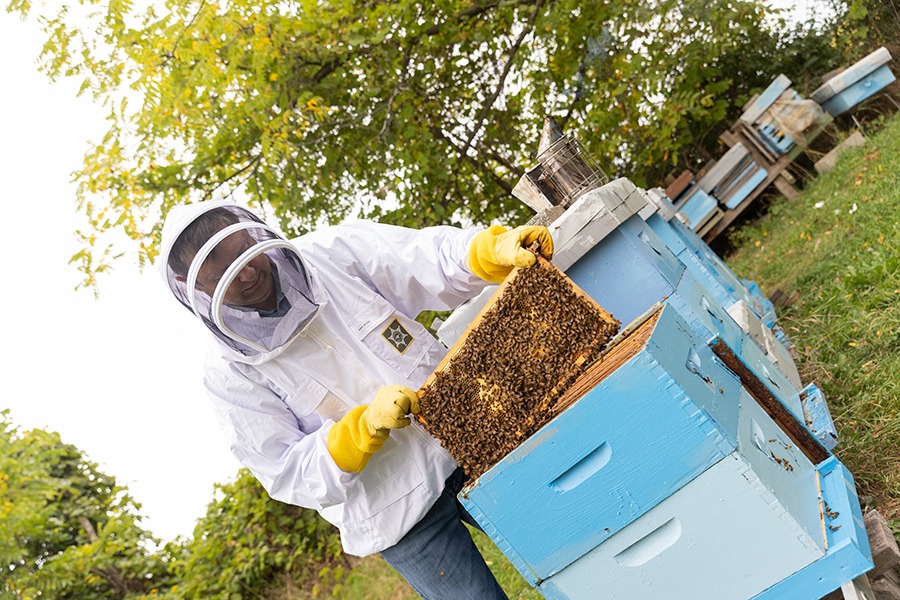
Each summer, he and his father suit up in protective gear and tend to dozens of hives at their two apiaries. They gently brush away bees to harvest honeycombs, strain the honey, then jar and sell out of his home and the St. Joseph’s Gift Shop. They also produce and sell beeswax and propolis tincture— a resin-like product known for its anti-inflammatory properties.
On more than one occasion, staff have knocked on the door to the Spiritual Care office seeking a jar of liquid gold outside of the gift shop’s hours.
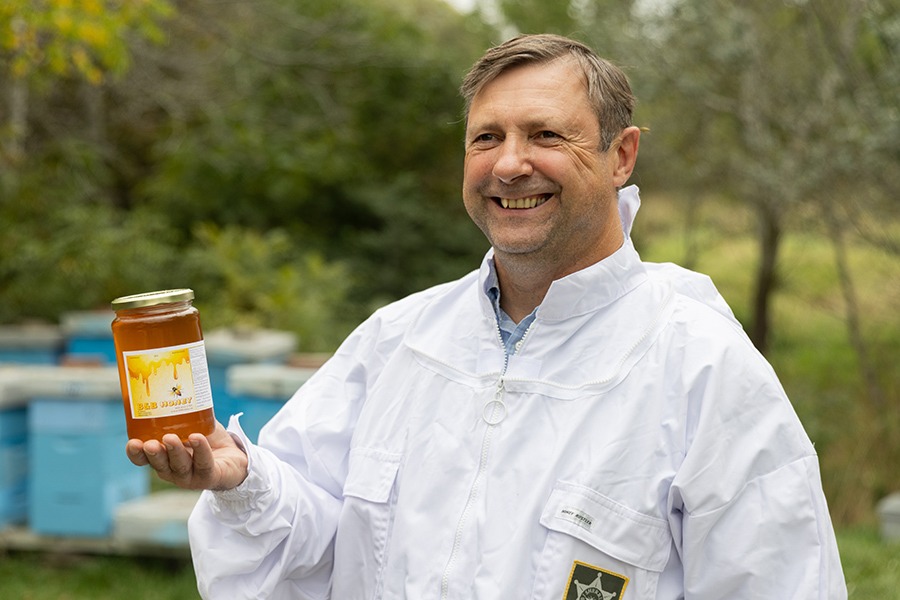
‘He gives me hope’
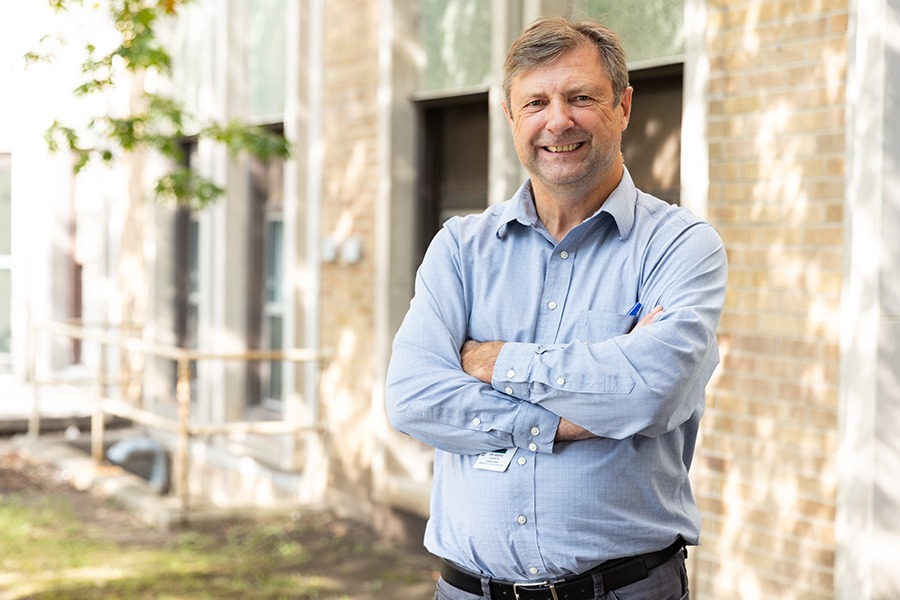
One misconception about spiritual care is that only religious people can benefit. “Our role is not to impose our own beliefs,” says Hemon. “We assist individuals in connecting with their own spiritual values, traditions, or practices in a way that is meaningful to them.”
While patients are free to decline his support, most welcome his presence or prayers without hesitation.
A patient could be in shock after receiving a new diagnosis, facing the unknown or even death. Sometimes he will just sit with them in silence until they are open to talk. He also advocates for his patients, connecting one with an occupational therapist after they expressed fear about using stairs when they were due to return home.
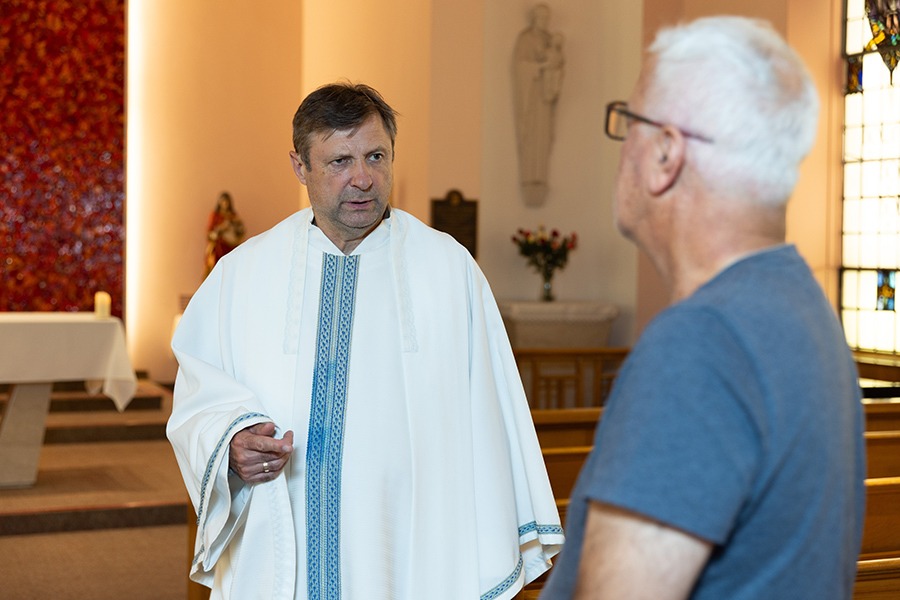
Hemon has observed patients responding better to treatment and recovering faster when they are at peace. “When somebody talks about their fear, it becomes much smaller. And they come to the conclusion that they can go through it, to accept the situation they are in.”
It’s not uncommon for his pager to go off with an urgent request from the emergency department. Often he is asked by families to join meetings with their loved one’s medical team to discuss end of life planning and organ donation.
When asked how he regularly deals with heavy topics and high emotions, Hemon replies “Self-care is the cornerstone of my ministry.” As a Ukrainian Catholic, he entered priesthood after marriage, and credits his wife and four daughters as his main support system. “I take care of them, and they’re part of me.”
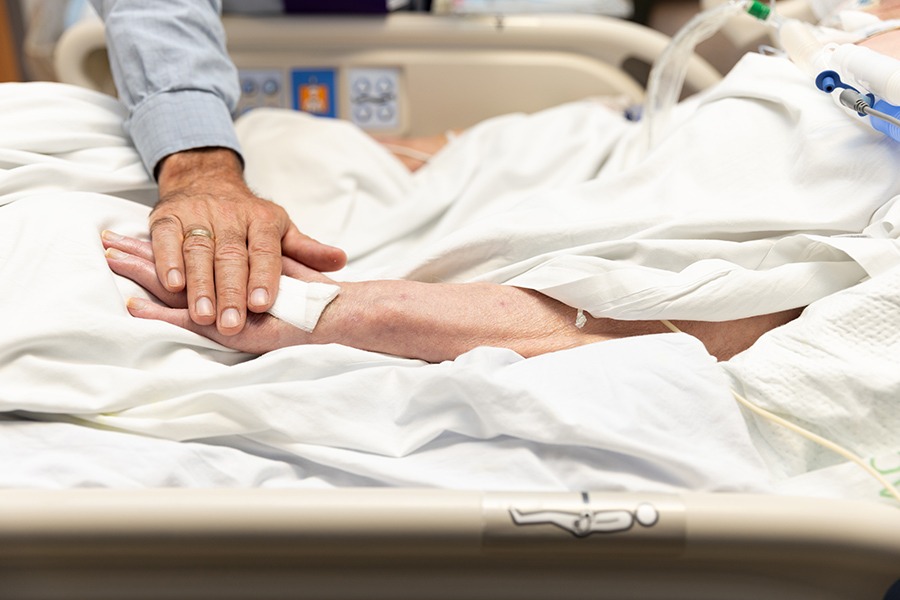
“Caring for people is really at the heart of what he does, he is genuinely concerned for them,” says Ford. That care often extends beyond the hospital walls. There was a regular dialysis patient who Hemon visited in the hospital for many years. When the patient passed away, his family asked Hemon to officiate his funeral. A thank you card from the family mentions “he enjoyed your visits very much and was always happy to tell us the words of wisdom you provided.”
For the past five months, Hemon has built a relationship with a patient in the ICU and his wife, offering daily communion and companionship at the bedside. “I have ALS. I cannot walk, move, or anything like that. It’s not something you recover from,” says the patient. “Being in a hospital that has spiritual care is very meaningful for me.” On this particular day, Hemon performs the sacrament of the sick, anointing him with blessed oil and offering prayers of healing and peace. “It’s not only about healthcare. For a person like me with a fatal disease, one has to prepare. And in order to prepare, you prepare spiritually.”
“And I hope this kind of spiritual care will be available to people everywhere. Being here with Father Boris has made a difference. He gives me hope.”
